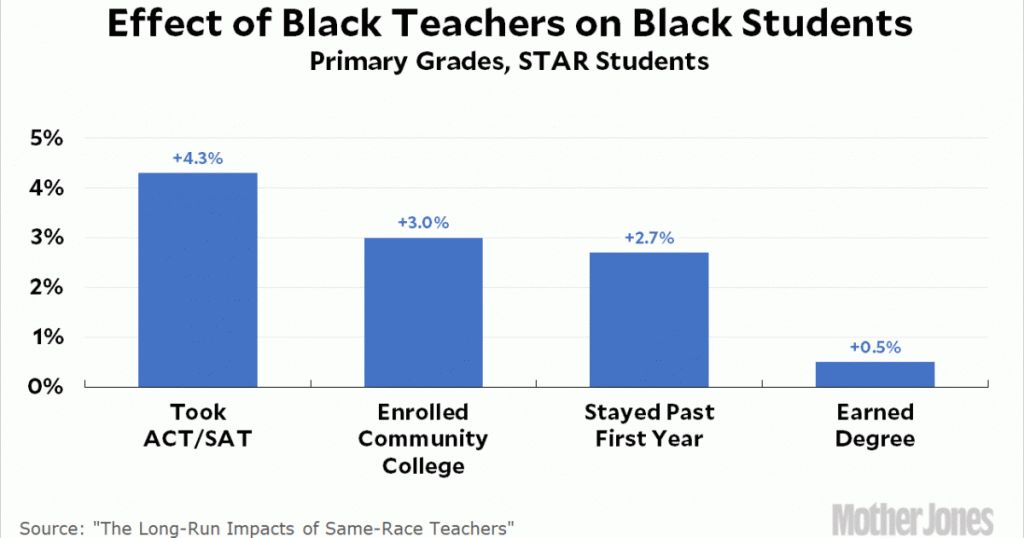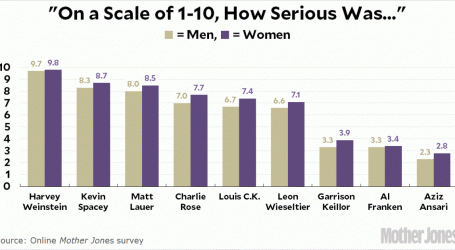Black Teachers Don’t Seem to Have Much Effect on the Success of Black Schoolchildren
Looking for news you can trust?Subscribe to our free newsletters.
Jesse Singal pointed me today to a new study of children who participated in the Tennessee STAR class-size experiment back in the 80s and 90s. I thought that STAR had already been mined for just about everything it could be, but it turns out a team of researchers has come up with something new. The STAR program was originally designed to test the effect of small class sizes, but the random assignment of children to classrooms meant they were also randomly assigned to different teachers. Does that make a difference? In particular, if black kids are assigned to black teachers, do they do better later in life? The researchers say yes:
Leveraging random student-teacher pairings in the Tennessee STAR class-size experiment, we find that black students randomly assigned to a black teacher in grades K-3 are […] 4 percentage points (13%) more likely to enroll in college than their peers in the same school who are not assigned a black teacher.
That sounds modest but promising. Unfortunately, Table 5 in the report tells us about more than just enrollment:
This is not so great. First, the effect was limited almost entirely to enrollment in community college. Second, although black children with black teachers were, overall, 4 percent more likely to enroll in college, they were only 2.7 percent more likely to stay past their first year—and this result was only marginally significant. Third, they were only 0.5 percent more likely to earn a degree. The authors confirm this in the text—”We find a near-zero, statistically insignificant effect on degree receipt”—but also offer up some gobbledegook to suggest this is no big deal: “However, given the very low rates of degree completion among non-matched students (8.5%), we cannot rule out degree receipt effects on the order of 1 or 2 percentage points. Effects in that range would suggest the marginal matched student induced into college persisting to degree receipt at around the same rate as the inframarginal, non-matched student.”
If I’m reading that correctly, it means the effect on earning a degree is about zero no matter what. That’s too bad, since this is really the only thing that matters. In fact, enrolling in college and not getting a degree probably does the kids no good and just leaves them with a bunch of student loans to pay off.
The authors spend a lot of time offering possible explanations for why having a same-race teacher in primary grades might help black kids, but I’m not sure this is worth speculating about unless there’s a larger, more convincing impact in the first place. For now, it looks to me like same-race teachers in primary grades have, at most, a tiny impact on children later in life, and most likely no real impact at all.





